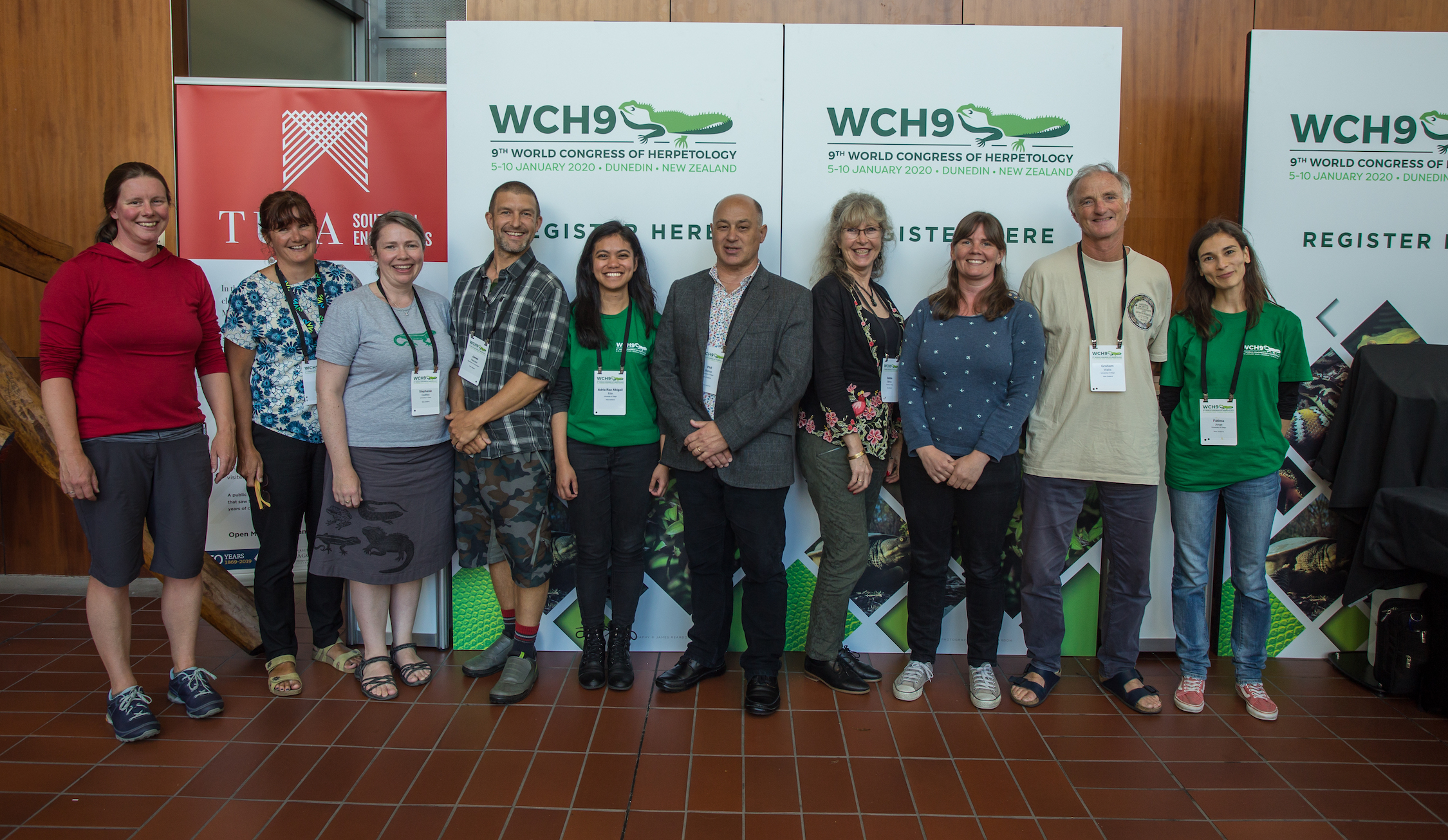The 9th World Congress of Herpetology (WCH) was held from 5–10 January 2020 at the University of Otago, in Dunedin, New Zealand, the home of ASG Co-Chair Professor Phil Bishop. WCH takes place every 3-4 years, with the aim of promoting herpetological research, education and conservation. Professor Bishop and his organizing team were the local hosts for this congress.
This WCH was characterized by having many amphibian-themed sessions, which was very encouraging given that they are the most threatened terrestrial vertebrate class in the world. Attendance at the event was very impressive: there were 57 countries represented through 874 delegates, of which 242 were students. There was excellent gender balance and regional diversity at the congress, which was highlighted in the final keynote talk given by Dr. Ana Carnaval.
Feedback received was very positive; with many participants indicating that this was not only the best WCH that they had been to, but possibly also the best congress that they had attended. The success was such that Professor Bishop got voted in as Secretary General Elect of the WCH for the next 4 years, followed by 4 years as Secretary General. The next WCH congress is scheduled to take place in Kuching, Malaysia, in 2024.
In the context of the congress ASG held two meetings: the first meeting was attended by about 30 participants and the second one by about a half dozen participants. Both meetings went very well, with ASG Secretariat members Sally Wren and Ruth Marcec-Greaves providing some context and ideas regarding the update of the Amphibian Conservation Action Plan (ACAP), giving a summary of what was found in an ACAP survey conducted late last year, and proceeding to explain the development of two separate products, a status review and an ACAP practitioner-focused document. This was a good opportunity for interaction and ASG members’ feedback.
WCH closed with the Aotearoa Climate Change Declaration, where participants called for science-based solutions to the issues caused by carbon emissions.
It was extremely fortunate that WCH took place prior to the declaration of the global Covid-19 pandemic, which has already had enormous impacts across the world and will very likely lead to many profound and permanent changes in the world.
By Phil Bishop(1,2) and Ariadne Angulo(1)
(1)IUCN SSC Amphibian Specialist Group, (2)University of Otago
Photo © James Reardon

